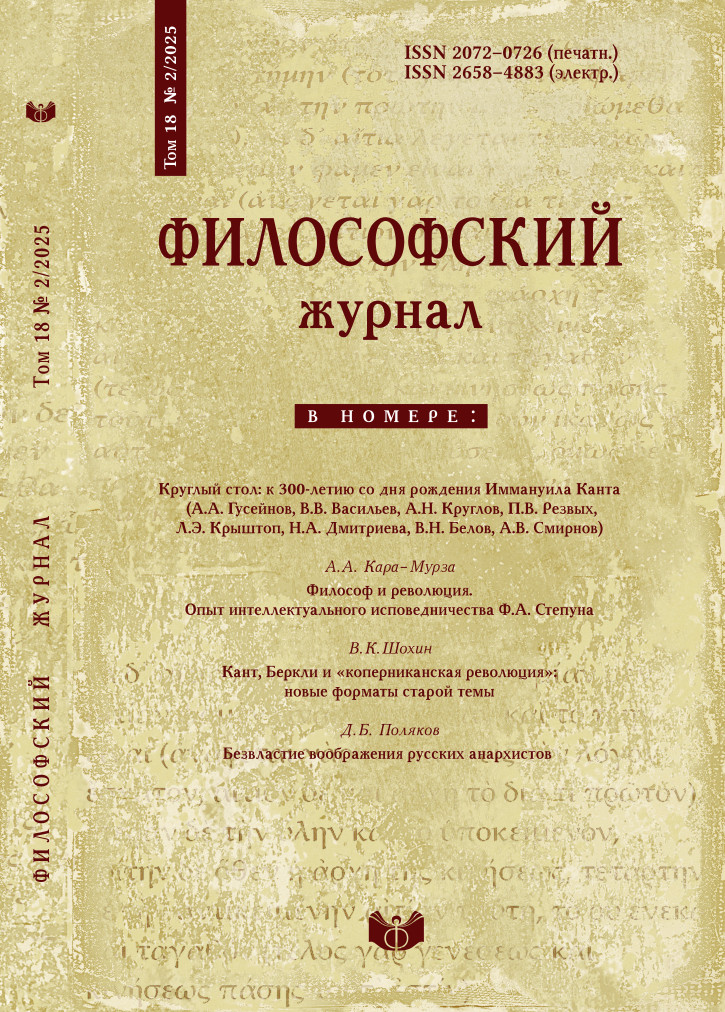The Philosopher and the Revolution. The experience of F.A. Stepun’s intellectual confession
DOI:
https://doi.org/10.21146/2072-0726-2025-18-2-83-93Keywords:
F.A. Stepun, Russia, culture, World War I, revolution, Bolshevism, emigration, memoirsAbstract
The article examines the philosophical and historical views of the emigrant thinker F.A. Stepun (1884–1965) – one of the last representatives of the Russian Silver Age, whose late writings are a rare example of historiosophical self-criticism for Russian dissident thought. The main body of sources consists of the philosophical and literary cycle “Thoughts on Russia”, published in 1923–1928 in the most authoritative journal of Russian emigration, the Parisian “Modern Notes”, as well as the relatively late extensive memoirs “The Fulfilled and Unfulfilled”, which were written in Germany and France in the 1930s and 1940s. In these texts, F.A. Stepun, one of the founders of Russian “political alternative studies”, writes about the successes and missed chances of Russian socio-cultural modernization in the early 20th century, the contradictions and mistakes of the “February period” of the Russian Revolution (in which he himself took an active part), the illusions of Russian emigration and the real prospects of the anti-Bolshevik struggle.






